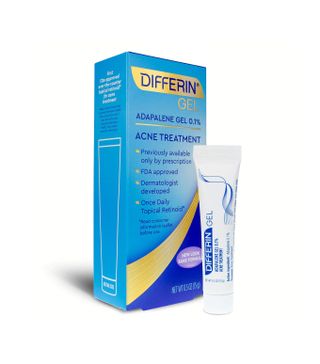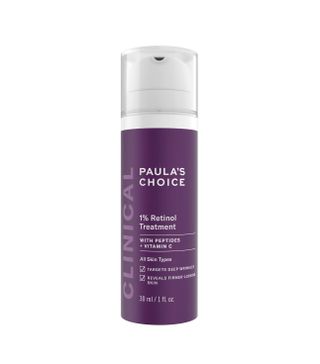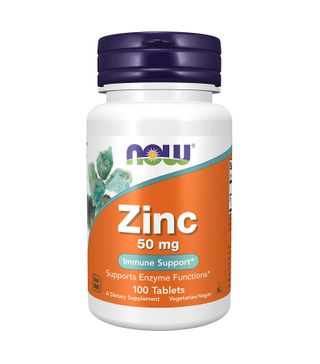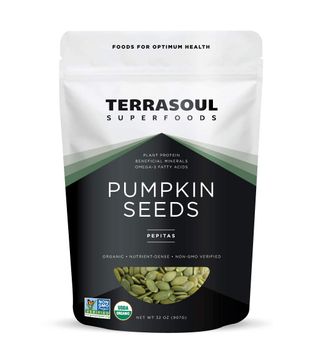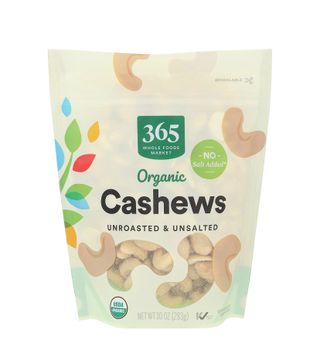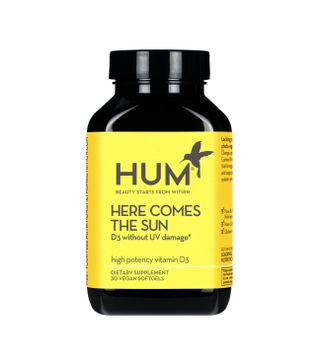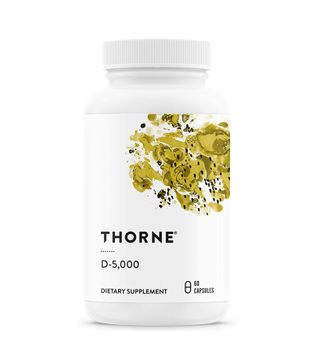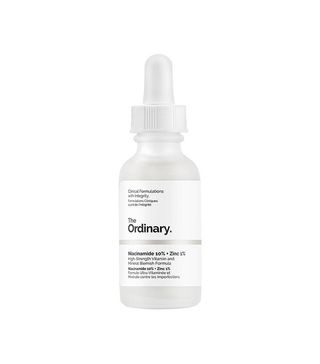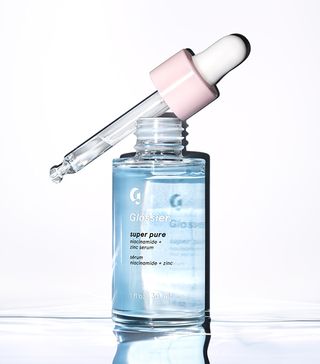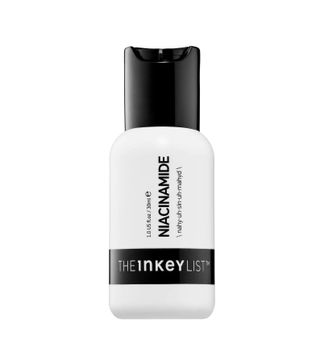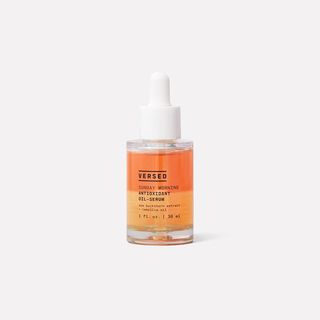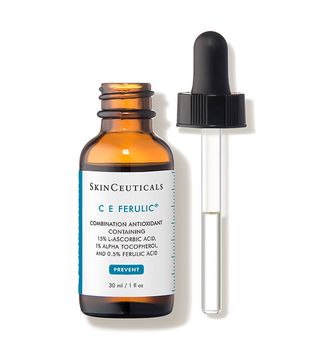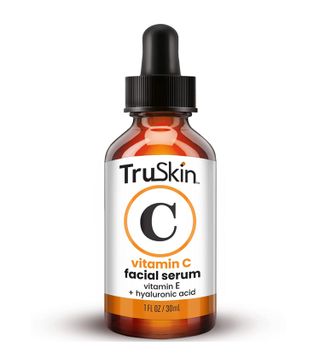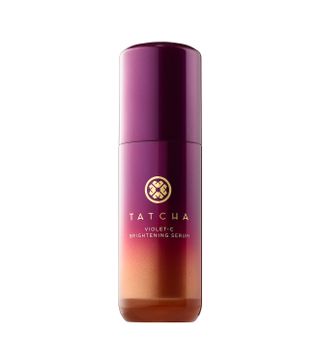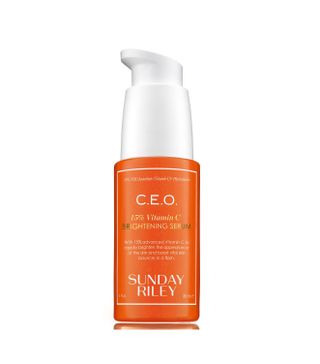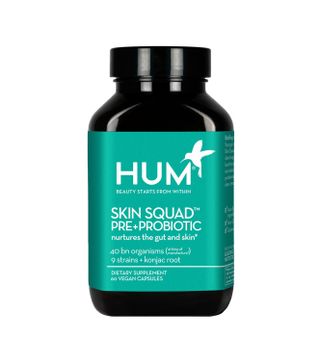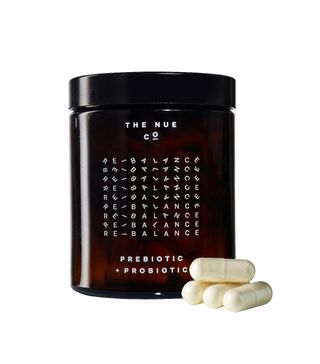Fun Fact: These 7 Vitamins Can Solve Your Acne Problems

When it comes to dealing with acne, there are a number of things you can do. It can start with skincare and finding the right products that work for your specific skin needs and type. But taking a holistic approach is always a good option. That entails, in addition to focusing on your skincare regimen, adjusting your lifestyle for better skin health: getting enough sleep, limiting your intake of certain things like alcohol, and making sure you're consuming the right vitamins and minerals. The good news about all of the above is that they're beneficial for your overall health, too.
It makes sense, right? When it comes to skincare, you might look at the ingredients list very closely to make sure you're putting the right things on your skin. The same can (and should) be said for your diet. What you put into your body makes a huge difference for your health (skincare included).
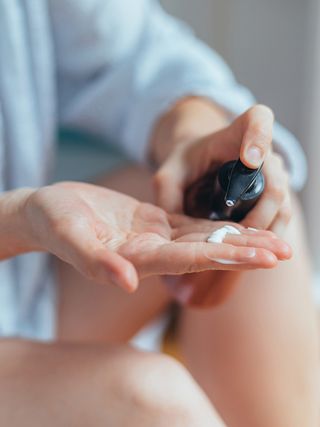
While there is no magic pill for acne that makes it all go away in a flash, there are certain vitamins and minerals with science-backed benefits that you can prioritize in your diet to help support skin health and prevent acne. But supplementation shouldn't be your only option in dealing with acne—you can use it to support all the other things you're doing, like your skincare routine. "In my opinion, no specific vitamin has enough scientific evidence of benefit as a recommended treatment," says Robyn Gmyrek, MD, FAAD, a board-certified dermatologist at UnionDerm. "I recommend a low-glycemic diet and a multivitamin."
A lot of the vitamins and minerals with proven acne-fighting benefits can easily be ingested through food instead of supplements. "Vitamins are best consumed through your diet, so the best step would be to up your intake of nutrient-dense foods like fruits, vegetables, and high-quality protein sources," explains Tamar Samuels, MS, RDN, NBC-HWC, a registered dietitian, national board–certified health and wellness coach, and co-founder of Culina Health. "If you are still not meeting optimal levels, you can use supplements, but speak to your dietitian [or another healthcare professional] first before starting any supplement routine. I also recommend eating fermented foods regularly and fatty fish at least twice a week. If you're unable to do so, you are a good candidate for a supplement."
Want to learn more about the particular vitamins that can help tackle acne? The experts outlined some below.
1. Vitamin A
"Vitamin A, also known as retinol, is one of the most well-recognized nutrients for healthy skin," Samuels says. "Synthetic retinoids have been commonly prescribed for the treatment of several skin conditions, including acne, eczema, and psoriasis since the 1980s. Vitamin A contributes to healthy skin by promoting skin cell growth and turnover. It helps fight acne by inhibiting oil secretion in the skin and decreasing androgen production."
When it comes to vitamin A, it's best applied topically rather than taken orally as a supplement for skin health. Gmyrek cites a 1981 study that found that taking retinol orally in high doses was effective, but the study length was only four months and did not observe overdosage. "Acne treatment may go on for years, and vitamin A accumulates in the body over time, leading to hypervitaminosis A," she says. "Too much vitamin A causes nausea, headache, dizziness, fatigue, blurred vision, bone pain, liver toxicity, hair loss, birth defects, and brain swelling called pseudotumor cerebri!" There are much safer and more effective topical options out there. Gmyrek recommends topical retinoids like tretinoin (Retin-A), tazarotene (Tazorac), and adapalene (Differin), which have been rigorously studied and show strong evidence of their effectiveness in treating acne.
2. Zinc
"Zinc is an essential mineral that supports healthy skin by promoting wound healing, fighting inflammation, and protecting our skin against UV radiation," explains Samuels. "Studies have found that zinc may be particularly beneficial for healing acne and other skin conditions like eczema."
Zinc can be consumed through your diet. Some foods high in zinc include oysters, red meat, poultry, beans, nuts, and seeds. But if you go the supplementation route, be careful with dosage. "Though zinc has been linked with decreased oil or sebum production and with antibacterial effects against propionibacterium acnes, I do not recommend excess zinc supplementation to treat acne because evidence is sparse, and too much zinc can lead to copper deficiency because zinc binds to copper," Gmyrek says. "In addition, many find that taking zinc supplements can give them nausea, vomiting, abdominal cramps, and diarrhea."
3. Vitamin D
"In one study, researchers found that a vitamin D deficiency is more frequent in patients with acne," explains Serena Poon, CN, CHC, CHN, chef, nutritionist, Reiki master, and founder of the Culinary Alchemy program. "Vitamin D has many health benefits and can be difficult to consume in food, especially for vegetarians. I recommend a high-quality vitamin D supplement to many of my clients." Samuels adds that vitamin D has anti-inflammatory properties as well, which aid in skin health.
4. Niacinamide
Nicotinamide (aka niacinamide or vitamin B3) can act as an anti-inflammatory and has been shown to decrease oil and sebum production, Gmyrek says. While studies have shown some promising results, Gmyrek cautions that there is not enough conclusive evidence to support taking vitamin B3 supplements in any meaningful way to treat acne.
You'd be better off going the topical route here. Gmyrek cites a study that found using a 4% topical niacinamide was more effective than clindamycin, a topical antibiotic that's commonly used in acne treatments.
For those who want to search for a supplement, board-certified dermatologist Hadley King, MD, gave one option. "A supplement that contains 750 mg niacinamide, 0.5 mg folic acid, 25 mg zinc, and 1.5 mg copper (included to avoid copper deficiency, which can be caused by zinc supplementation) is FDA approved for the treatment of inflammatory skin conditions, including acne," she explains. "The brand name is Nicomide, and it's also available as a generic. It's taken twice daily. Responses vary and tend to be better when combined with topical anti-acne medications."
5. Vitamin E
"Vitamin E is an antioxidant and has soothing anti-inflammatory properties that may be beneficial for acne treatment," Poon says. "It is also thought to aid in healing discoloration and scar prevention. Vitamin E is most effective for skin health when applied topically. Some people may experience breakouts from the oil in topical vitamin E, so you may want to test vitamin E oil on a small section before lathering all over your face."
6. Vitamin C
"Vitamin C is both an antioxidant and an anti-inflammatory agent—it is available commonly as sodium ascorbyl phosphate (SAP). SAP is a stable form of vitamin C, which is effective against the bacteria propionibacterium acnes," Gmyrek says. "There are, however, no controlled studies that show that oral supplementation of vitamin C is correlated with a decrease in acne."
For vitamin C, you'll want to go the topical route. Gmyrek adds that there are studies that show the application of the vitamin is effective as a topical agent alone and in combination with vitamin A, retinol.
7. Probiotics and Prebiotics
"Your gut microbiome is directly linked to your skin health through what is called the gut-skin axis," Poon says. "There is even research that directly links the balance of the gut microbiome to the presence of acne. A healthy digestive system is a fundamental component of my Culinary Alchemy programs, and I find one of the best ways to support digestive health is through a high-quality probiotic and prebiotic supplement regimen. A probiotic that specifically contains lactobacillus paraplantarum THG-G10 is evidenced to support acne prevention."
Next up, No Lie: These Vitamins Will Make Your Hair, Skin, and Nails Flawless
This article was originally published at an earlier date and has since been updated.
Disclaimer
This article is provided for informational purposes only and is not intended to be used in the place of advice of your physician or other medical professionals. You should always consult with your doctor or healthcare provider first with any health-related questions.
Sarah is lifestyle writer and editor with over 10 years of experience covering health and wellness, interior design, food, beauty, and tech. Born and raised in Los Angeles, she attended New York University and lived in New York for 12 years before returning to L.A. in 2019.
In addition to her work on THE/THIRTY and Who What Wear, she held editor roles at Apartment Therapy, Real Simple, House Beautiful, Elle Decor, and The Bump (sister site of The Knot).
She has a passion for health and wellness, but she especially loves writing about mental health. Her self-care routine consists of five things: a good workout, “me” time on the regular, an intriguing book/podcast/playlist to unwind after a long day, naps, and decorating her home.
-
 My Aesthetician Just Told Me I've Been Doing These 3 Things Wrong for My Acne
My Aesthetician Just Told Me I've Been Doing These 3 Things Wrong for My AcneMajor face-palm moment.
By Shawna Hudson
-
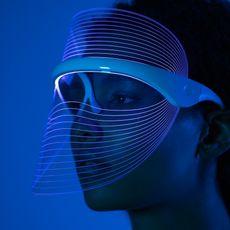 These Light Therapy Devices Are Like At-Home Cortisone Shots for Acne
These Light Therapy Devices Are Like At-Home Cortisone Shots for AcneSign me up.
By Katie Berohn
-
 I'm an Esthetician and These Are My Most-Recommended Skincare Products
I'm an Esthetician and These Are My Most-Recommended Skincare ProductsYour skincare shopping list.
By Grace Day
-
 These 15 Moisturizers Are the GOAT for Acne-Prone Skin
These 15 Moisturizers Are the GOAT for Acne-Prone SkinDerms agree.
By Shawna Hudson
-
 15 Biotin Supplements That Can Transform Your Hair, According to Gushing Reviews
15 Biotin Supplements That Can Transform Your Hair, According to Gushing ReviewsEverything to know about the powerhouse vitamin.
By Maya Thomas
-
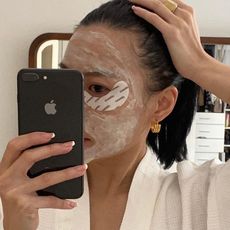 A Derm Just Told Me About the Biggest Skincare Mistakes for Acne
A Derm Just Told Me About the Biggest Skincare Mistakes for AcneAcne myth-busting.
By Eleanor Vousden
-
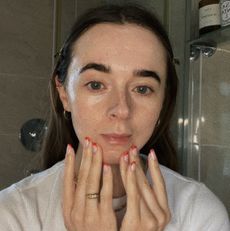 This Expert-Approved Technique Is Set to Be the Next Big Skincare Trend
This Expert-Approved Technique Is Set to Be the Next Big Skincare TrendAnd it combats acne.
By Grace Day
-
 ICYMI, Kourtney Kardashian Barker's Supplement Line Is Now Available on Amazon
ICYMI, Kourtney Kardashian Barker's Supplement Line Is Now Available on AmazonLemme try it.
By Katie Berohn
